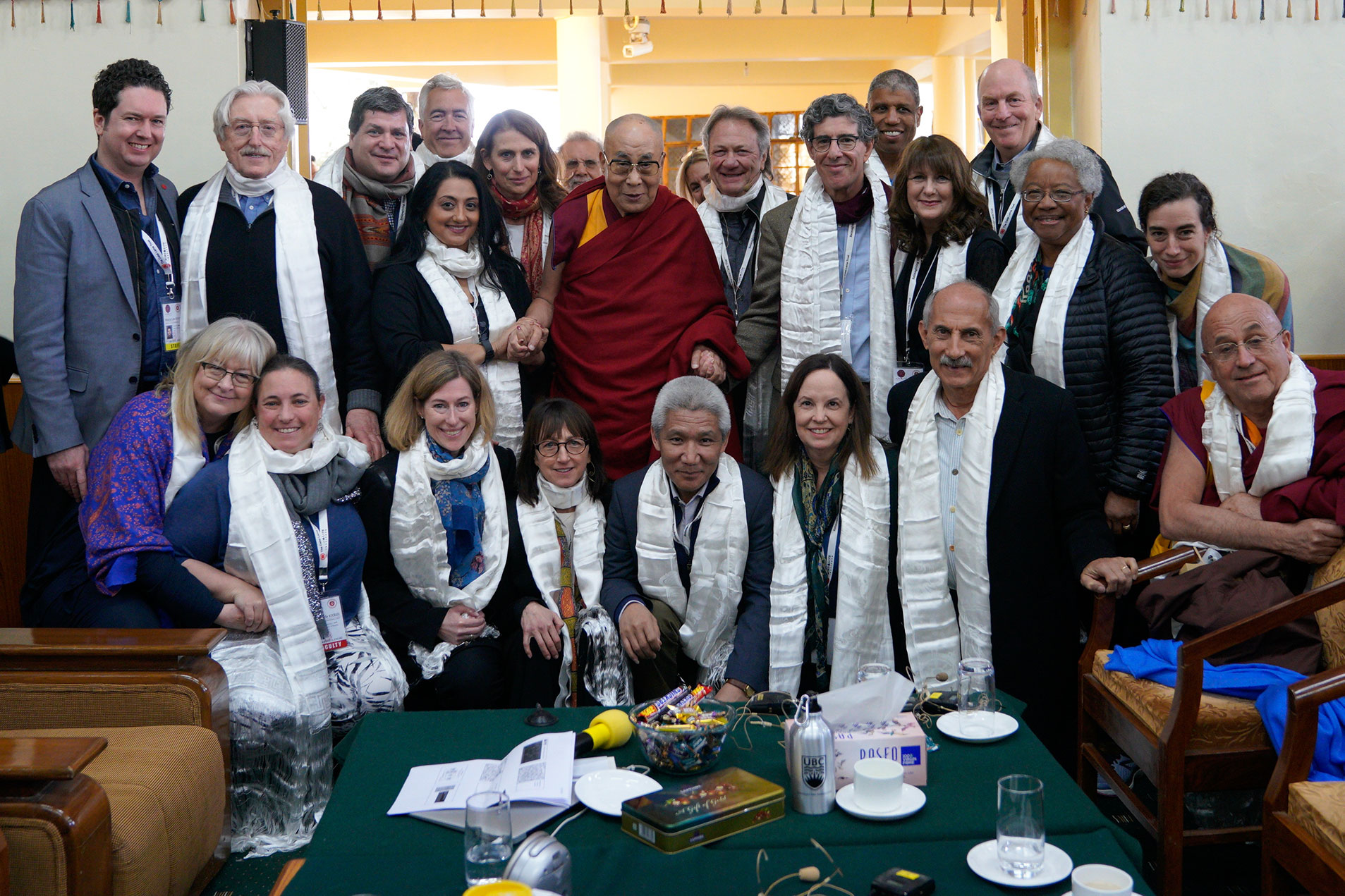Welcome to “Education of the Heart.” This multimedia site captures presentations and discussions from the Mind & Life Institute’s 33rd Dialogue with the Dalai Lama held in Dharamsala, India in March 2018. For five days, leading scientists, scholars, and educational practitioners gathered to explore new frontiers in education rooted in science and contemplative wisdom.
Today’s youth are growing up at a time of unprecedented change and escalating challenges. How can we best equip them with the values, skills, and attitudes needed to navigate an increasingly complex and interconnected world?
The Dalai Lama has written extensively on the need for an “education of the heart,” calling for education systems to embrace the teaching of social-emotional skills such as empathy and perspective taking, and universal values such as generosity, compassion, forgiveness, tolerance, and peace. Implicit in educating the heart is equipping young people to engage ethically in the world, to view themselves as embedded in an interdependent context, and to cultivate actions and behaviors that contribute to the collective good.
Over two decades, the social and emotional learning (SEL) movement has transformed traditional notions of education by prioritizing prosocial behavior and emotional resilience. Approaches to SEL continue to evolve in the belief that there’s more we can do to prepare the world’s youth to be productive, engaged, and compassionate global citizens.
Summarized in this multimedia format are remarks by distinguished experts, many of them founders of the SEL movement, as they engage with the Dalai Lama in a far-reaching dialogue that bridges scientific inquiry, contemplative wisdom, and educational practice. Presenters share research findings and novel educational practices from a new generation of SEL programs and approaches focused on “educating the heart.”
While students have long been the focus of SEL, the Dialogue reveals an expanded emphasis on adult development and transforming educational systems through programs that equip parents and teachers to better manage stress, for instance, or through embedding an SEL mindset within schools. We are especially pleased to highlight examples of what “educating the heart” looks like in practice, along with a Resources section with links to relevant frameworks, curricula, and tools.
We are extremely grateful to Linda Heuman for capturing the spirit and substance of the dialogue. Her reporting and vision formed the foundation for this website, supplemented by significant contributions from conference participants and Mind & Life staff. Our profound thanks also extend to guest editor Robert Roeser for his technical review of the content, and insightful analysis of core conference themes in the Afterword. And our deepest appreciation goes to Richard Davidson and Thupten Jinpa, co-chairs of the Dialogue Program Planning Committee, for their invaluable guidance throughout this project.
The 33rd Mind & Life Dialogue would not have been possible without the generous support and contributions of many individuals and institutions. We extend heartfelt thanks to the Hershey Family Foundation and the Dalai Lama Trust, India, the primary sponsors of the Dialogue. In addition, we offer our gratitude to the other members of the Program Planning Committee—Sona Dimidjian, Michael Meaney, and Kimberly Schonert-Reichl; our esteemed presenters and moderators; Mind & Life’s dedicated staff; and our donors, in particular those who supported this Dialogue: the George Family Foundation, and The Omidyar Group.
It is our hope that “Education of the Heart” will help advance renewal in teaching and learning in schools, and bolster efforts to equip young people to build more peaceful, just, and equitable societies.
Enlarge

Photo by Tenzin Choejor.
